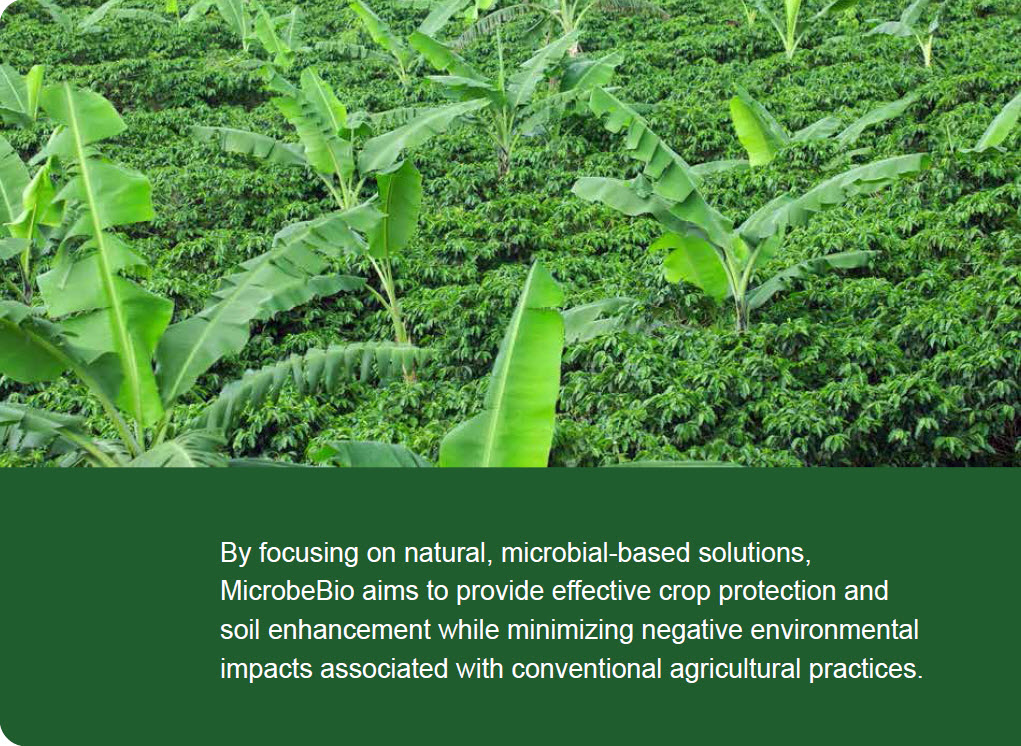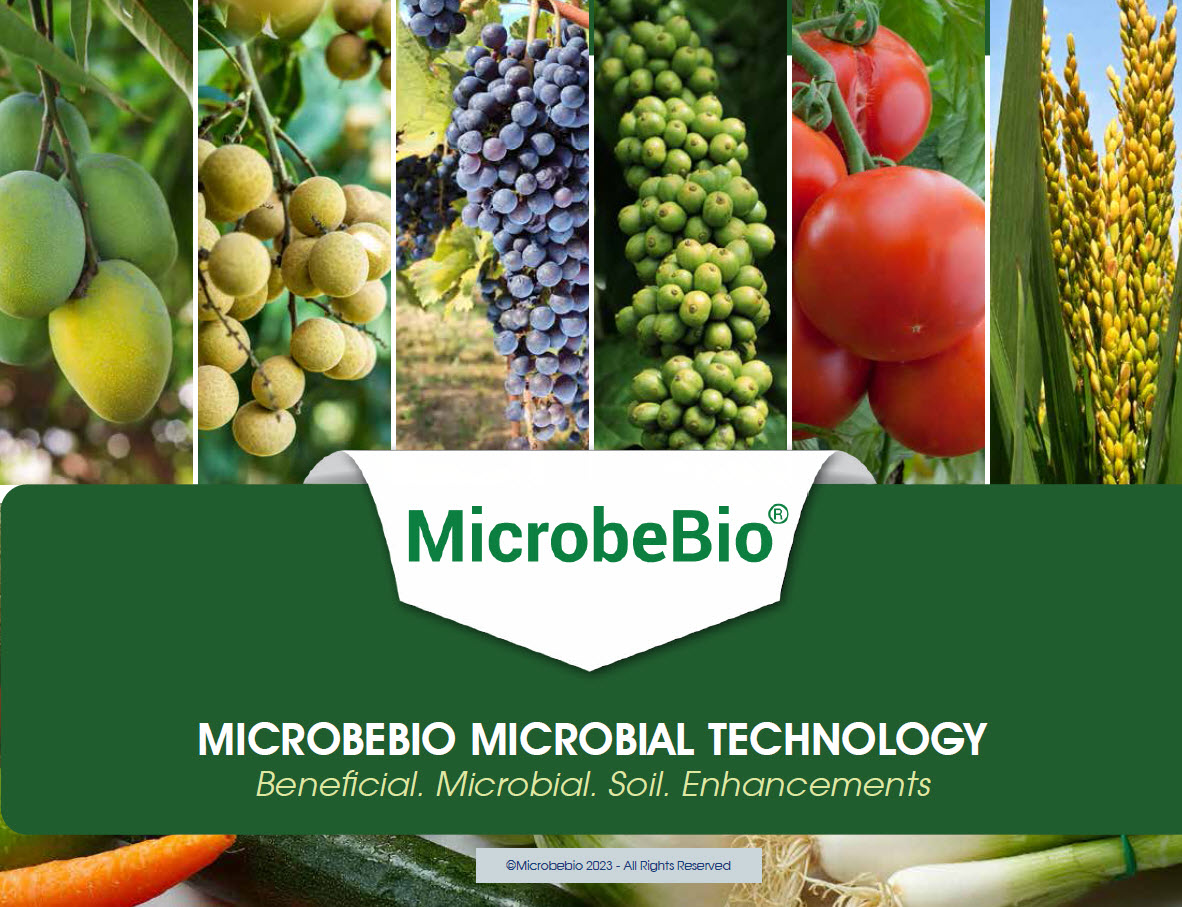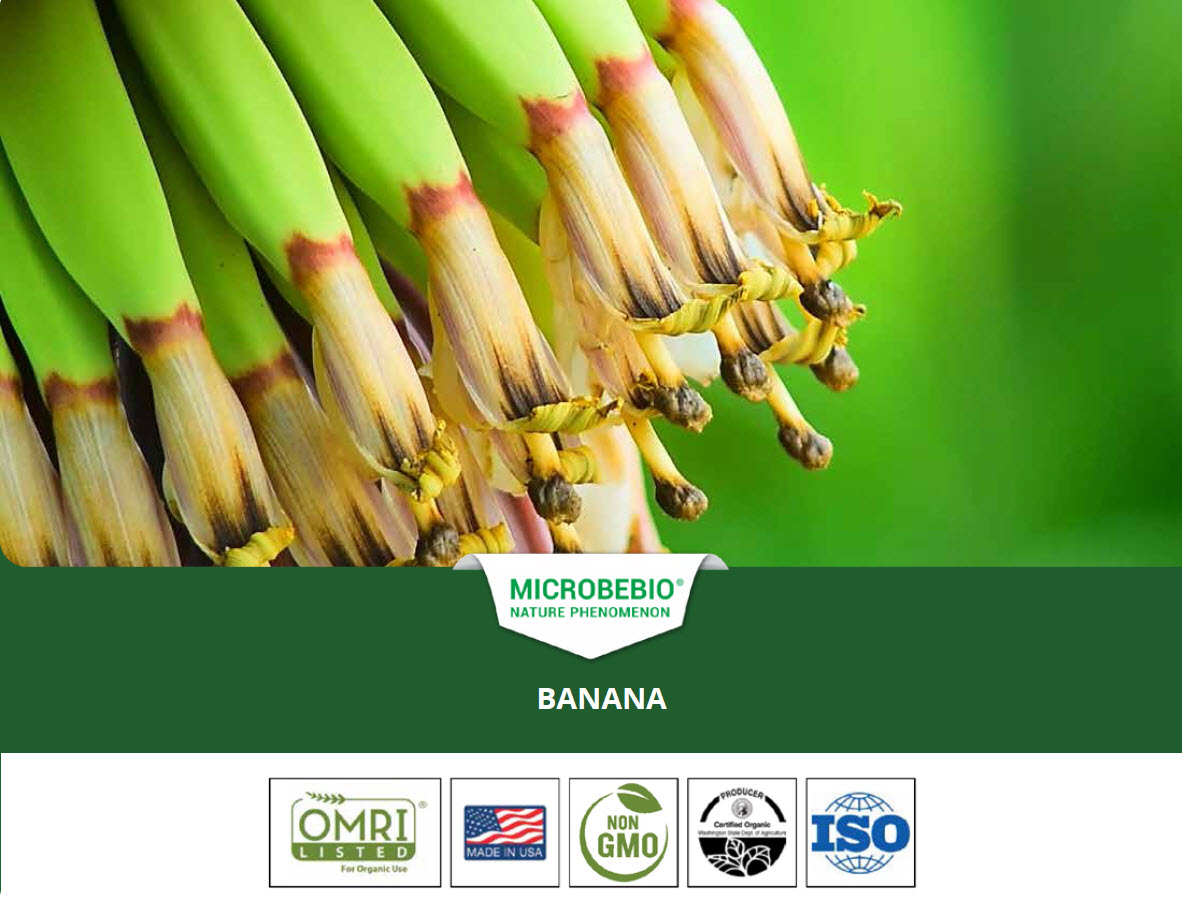

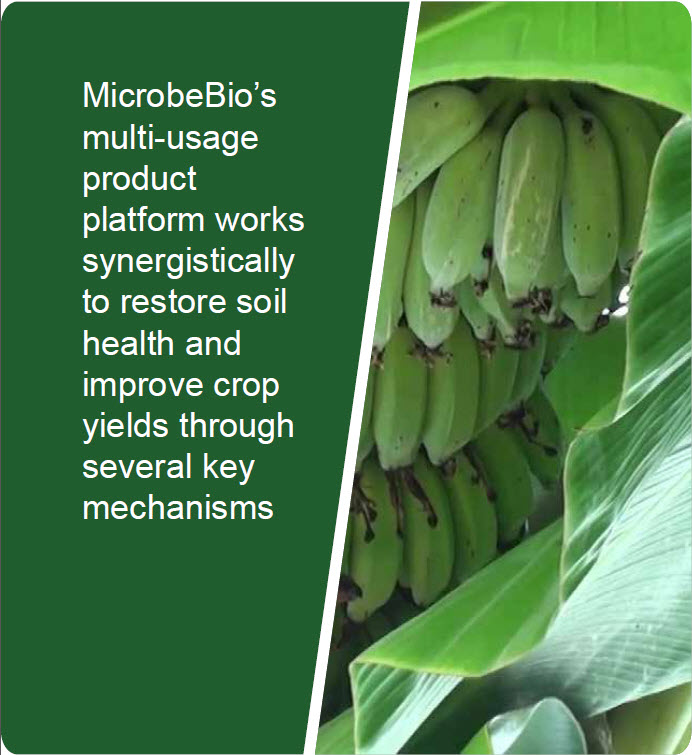
- Comprehensive approach: MicrobeBio’s products are designed to work together throughout the entire crop cycle, from seed to harvest, providing essential nutrients and beneficial microorganisms at each stage of plant development
- Mimicking natural processes: The products closely replicate nature’s own methods for nutrient delivery and crop protection, enhancing plant health and creating natural defenses against diseases and pests
- Beneficial microorganisms: MicrobeBio’s products contain a variety of “free-living” microorganisms and fungi that form symbiotic relationships with plant roots, enhancing nutrient uptake, improving soil structure, and boosting plant growth and vigor
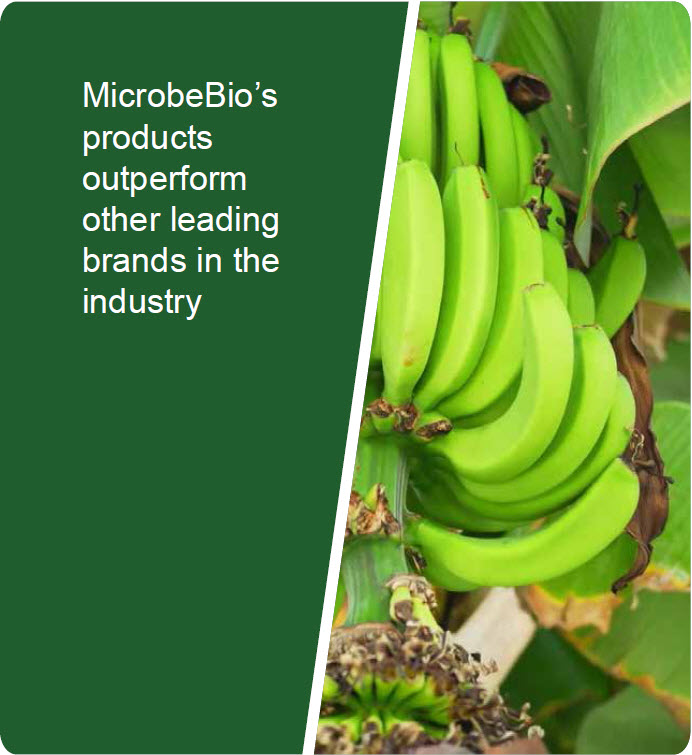
- Advanced multi-usage platform: Instead of focusing on singular aspects of plant development, MicrobeBio’s products address multiple factors simultaneously, providing a more holistic approach to plant nutrition and protection.
- Targeted nutrient delivery: The products deliver precise amounts of nutrients and microbial inoculants needed at different stages of plant growth, reducing guesswork for farmers.
- Soil remediation: MicrobeBio’s products not only feed plants but also work to improve overall soil health, creating a more sustainable growing environment.

-
Utilizing naturally occurring microorganisms and bacteria to enhance soil fertility and plant health
-
Promoting the breakdown of organic matter in soil, which releases additional nutrients to plants.
-
Enhancing plants’ natural ability to fight off harmful pathogens and bacteria.
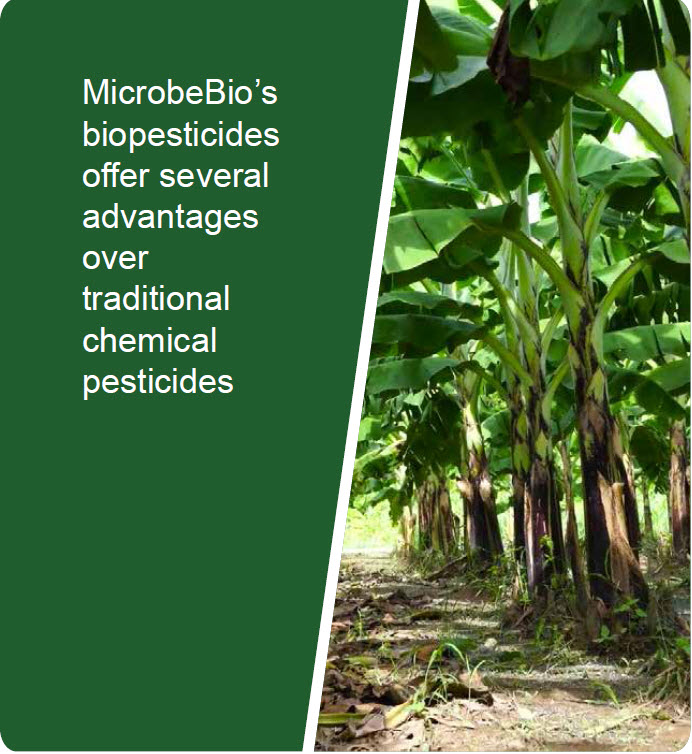
-
Lower environmental impact: Biopesticides are considered to have a reduced impact on the environment compared to synthetic pesticides.
-
Targeted action: They are designed to affect only specific pest organisms, reducing harm to beneficial insects and other non-target species.
-
Reduced residues: Biopesticides often leave fewer residues on crops, making them safer for human consumption.
-
Sustainable pest management: They can be an effective part of integrated pest management strategies, helping to reduce reliance on chemical pesticides.
